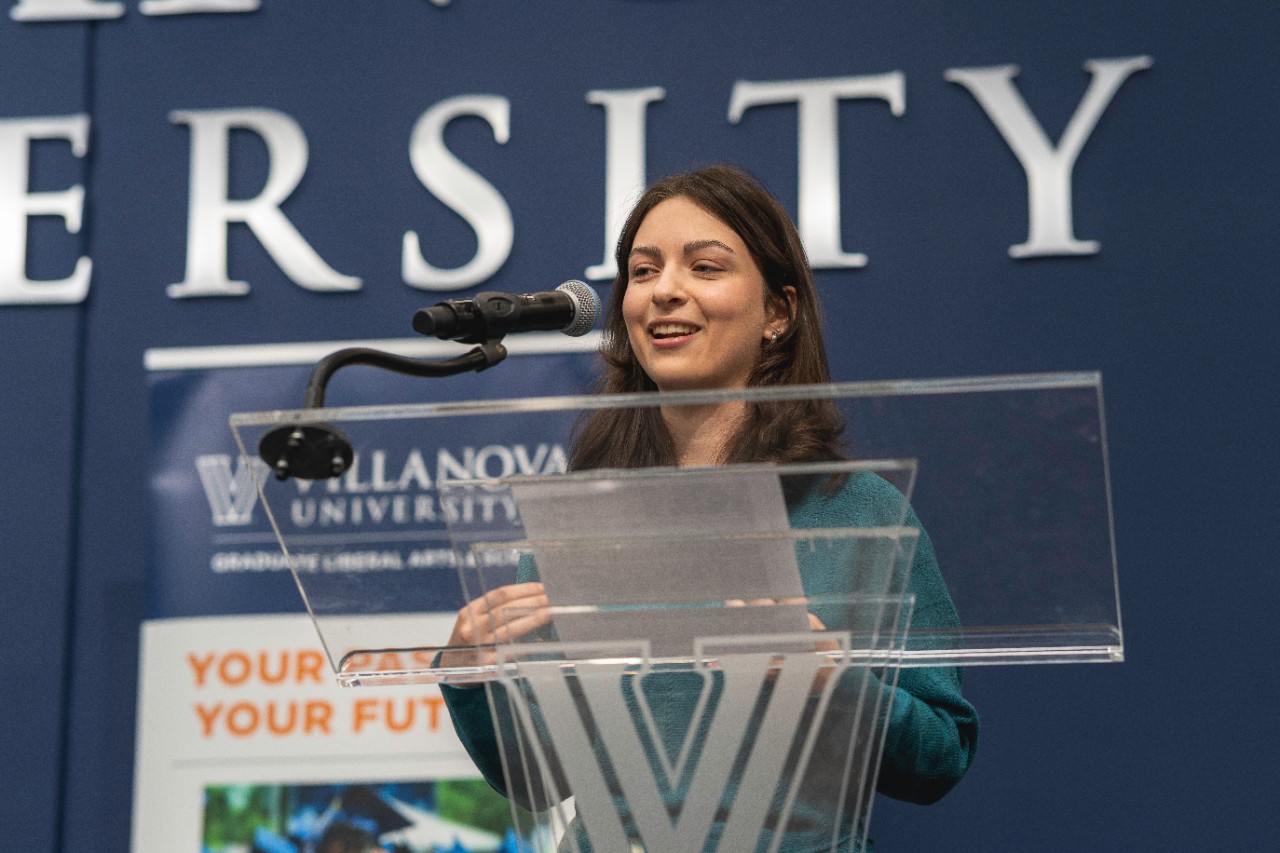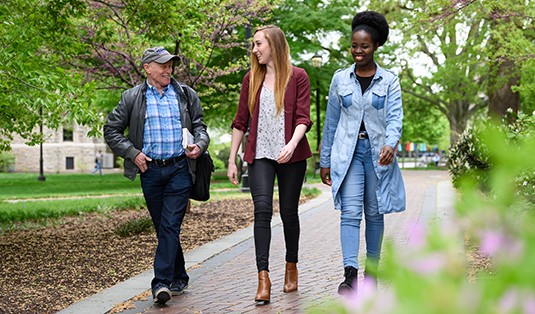SUMMER RESEARCH FELLOWSHIP

Graduate students in the College of Liberal Arts and Sciences may apply for a summer stipend to support their scholarly efforts. Awards are made on a competitive basis in the amount of $4,000 for master's students and $5,000 for doctoral students for work in June, July and August. (Note: Biology and Chemistry students qualify for a $1,000 research prize).
Eligibility
Students in good academic standing in either a master’s or doctoral program in the College of Liberal Arts and Sciences are eligible. BS/MS or BA/MA students who clearly will be in the graduate portion of their degree program during the summer of support are eligible. The project should be directly related to the applicant’s completion of degree requirements (e.g., thesis or dissertation work, Independent Study or Directed Research, a capstone requirement in the program, etc.) or serve as a necessary component for their scholarly/professional trajectory. A student may receive this form of support only once. You are not eligible to apply for a fellowship in the summer following graduation.
Deadline for Proposals and Review Process
A completed application on InfoReady must be submitted no later than February 1 (regardless of which day of the week it falls). No extensions will be granted.
Evaluation Criteria for Doctoral Students
Applications are evaluated by a standing committee of graduate faculty in the College according to the following criteria:
- Faculty sponsor support. The strength of faculty sponsor support is the extent to which the sponsor makes a compelling case for the student’s project and the student's ability to complete the proposed summer project.
- Clarity and persuasiveness of the proposal. A successful proposal presents a clear research agenda and explains the significance of the project as a contribution to the discipline(s) or professional community. Interdisciplinary projects and projects that push the limits of the discipline(s) are as welcome as those that fit existing paradigms. Projects that relate to alt-ac career development will also be considered.
- Feasibility within the timeframe of an eight-week summer grant. A successful proposal includes a plan for the work (e.g. a schedule or other way of explaining what will be done) and identifies appropriate venues for presenting the work to scholarly audiences.
- Is the project sufficiently grounded, well-researched, adequately documented and reflective of the field in which it is situated?
- Contribution to dissertation completion or manuscript preparation. In general, the competition awards later stage doctoral candidates, however, early stage doctoral candidatess are welcome to apply. Proposals geared toward dissertation completion will be prioritized. However, projects that result in publication preparation or conference presentation will also be considered as funding permits.
- Contribution of the research project to the applicant’s broader academic interests and trajectory. A successful proposal describes how the project contributes to student progress toward degree completion or development as a scholar.
Evaluation Criteria for Master's Students
Applications are evaluated by a standing committee of graduate faculty in the College according to the following criteria:
- Faculty sponsor support. The strength of faculty sponsor support is the extent to which the sponsor makes a compelling case for the student’s project and the student's ability to complete the proposed summer project.
- Project feasibility - the extent to which the proposed project is conceptually and methodologically appropriate and can be completed (and/or represents an appropriate amount of work) during summer research.
- The direct benefit of the project to the student - the extent to which the proposed project will have direct benefit to the student. A successful proposal describes how the project contributes to student progress toward degree completion or development as a scholar. A proposal in which the student participates in multiple phases of an overall project is stronger than one where the student only see fragments of the research process.
- Clarity of the proposal - the extent to which the proposal exhibits writing that clearly articulates the project and its merits to an interdisciplinary faculty evaluation committee. Proposals should be original work consistent with disciplinary norms. Any outside sources including artificial intelligence must be clearly attributed.
- Contribution to the discipline or profession - a successful proposal describes a project in which the student engages in original work that has the potential to inform the understanding or practice of his or her discipline/profession. A proposal in which the student anticipates presenting or performing his or her work to a local, regional or national audience is stronger than one where the student has no plans for sharing the work.
Award Recipients
Decisions about the applications will be announced in mid-to-late March.
Graduate Research Symposium
All award recipients will be required to participate in a Graduate Research Symposium on October 30, 2026. Participation in the Symposium entails submission of a final project abstract, a 3MT-style video, and a poster or oral presentation. Details about the Symposium will be available at a later date.
Final Reporting
In lieu of a final written report on the outcome and status of the funded project, recipients will be asked to submit a final project abstract and a 3MT-style video by September 15 (regardless of which day of the week it falls).

